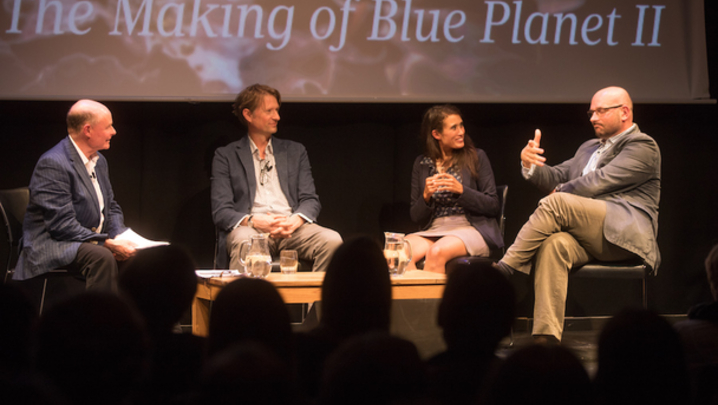Julian Hector, head of BBC Studios’ Natural History Unit, remembers a very special premiere in Bristol
As BBC Studios’ Natural History Unit turned 60 this autumn, 2017 was a particularly exciting and busy year. But I was nervous about whether Blue Planet II would equal the impact of Planet Earth II almost a year previously.
In November 2016, Planet Earth II attracted record TV audiences in the UK; the series went on to win RTS, Bafta and Emmy awards. That sequence of racer snakes hurling themselves at hatchling marine iguanas won a Bafta for TV’s most memorable moment.
Hence, my nervousness on Wednesday 4 October, a week before the Bristol premiere of Blue Planet II. Press pick-up had been extraordinary and positive; the London royal premiere the week before had gone well.
There were 106,000 ticket applications from the public for 200 seats. My colleagues impressed on me: “He’s a rock star… we can fill Wembley Stadium and Ashton Gate Stadium simultaneously… This is greater demand than Glastonbury!” Sir David Attenborough was coming.
The Blue Planet II team had taken upward of four years to get here, with more than 1,000 hours spent in deep-sea submersibles and over 1 million feet of accumulated descent filming during the series.
Audiences come to natural history super-landmarks to escape and be immersed in awe and wonder. Blue Planet II is the first big natural history landmark to embed strong environmental stories within the body of the programmes.
We wanted to do this, but was it a risk to draw the audience away from the wonder?
The Bristol premiere was attended by numerous VIPs. They included former heads of the Natural History Unit (NHU) John Sparks, Alastair Fothergill, Keith Scholey, Neil Nightingale, Andrew Jackson and Wendy Darke.
The NHU was founded in 1957 by the then-head of BBC Bristol, Desmond Hawkins. He tried to persuade David Attenborough to come to Bristol to head it up but, alas, David had his own fledgling Travel Unit, based in London.
The premiere kicked off at 7:30pm and we were led to our reserved seats. Tony Hall was sitting next to me in the front row.
A few seats along were Sir David and Liz Bonnin. Liz had kindly agreed to host a question and answer session with Sir David and the Blue Planet II production team following the screening.
I noticed that Sir David looked a little fidgety. He stood up and walked over to Tony Hall and whispered into the DG’s ear something along the lines of: “Do you want to sit at the back with me?” An exodus from the front row ensued as everyone followed Sir David.
My speech presented the natural world as a global commons that keeps all humanity alive. I pointed out how the natural world informs our humanity through human expression.
For 60 years, the NHU has delivered the wildlife close-up and defined new boundaries of technical innovation.
It was 1979’s Life on Earth, produced by Chris Parsons and presented by Sir David, which spawned the super-landmark series.
Chris went on to lead the NHU. He was a hero in our history but is sadly no longer with us.
The Bristol premiere ended with rapturous applause from the audience, who were thrilled by our latest super-landmark. I shall never forget the sight of the amazingly youthful Sir David skipping down the stairs with Tony Hall and Liz Bonnin to join the production team for the Q&A.
What an extraordinary week that was. It brought together people who share a common vision to bring the wonder of the natural world to people’s lives and who will never tire of giving nature a voice.
Julian Hector is head of the Natural History Unit, BBC Studios.




